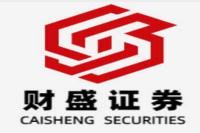OUE REIT divesting from Libo Plaza: A strategic move or a sign of market shifts? (Meta Description: Analysis of OUE REIT's sale of Libo Plaza in Shanghai, exploring market dynamics and investment strategies in the Chinese commercial real estate sector.)
Wow, talk about a big move! OUE REIT, a heavyweight in the Singaporean REIT scene, just dropped a bombshell: they're selling off their stake in Shanghai's Libo Plaza for a cool ¥1.917 billion (approximately US$266 million). This isn't just some small-time transaction; it's a significant event with ripples that could be felt across the Asian real estate market. This isn't just about numbers; it's about strategy, market trends, and the future of investment in China's bustling commercial landscape. We'll delve deep into the specifics of this deal, analyzing the underlying reasons, the implications for OUE REIT, and what this might mean for future investment decisions in the region. Are we seeing a shift in the market? Is this a savvy strategic move, or a sign of trouble ahead? Buckle up, because we're about to unpack this fascinating story, exploring the intricacies of international real estate investment and the ever-evolving dynamics of the Chinese market. We'll look at the deal from every angle, examining the property itself, the financial implications, and the potential long-term consequences. Get ready for a deep dive into the world of REITs, asset optimization, and the art of strategic divestment!
OUE REIT's Strategic Divestment of Libo Plaza: A Deep Dive
OUE REIT's decision to sell its 91.2% stake in Libo Plaza, a prime commercial property in Shanghai's prestigious Huaihai Road district, marks a significant shift in their portfolio strategy. The transaction, valued at ¥1.917 billion, is expected to conclude by the end of 2024. This move isn't a knee-jerk reaction; it's a calculated decision based on a number of factors, all pointing towards a broader strategic realignment within OUE REIT's investment portfolio.
This sale isn't just about the bottom line; it's about optimizing their asset mix and enhancing the overall resilience of their portfolio. Let's break down the key reasons behind this decision:
-
Non-Core Asset: Libo Plaza, while located in a premium area, represented only 6.6% of OUE REIT’s total portfolio revenue by September 2024. This highlights a focus on concentrating resources on core assets that contribute more significantly to overall profitability. It's a classic case of streamlining operations for maximum impact.
-
Lease Expiry and Building Age: The building’s age (completed in 1999) and shorter lease terms are impacting its valuation and competitiveness, especially in the context of a currently oversupplied Shanghai market. This is a factor many investors often overlook, but it's crucial in determining long-term viability. Think of it like this: a car loses value over time; the same principle applies to commercial real estate.
-
Market Dynamics: The Shanghai commercial real estate market is not immune to fluctuations. A surplus of available properties creates a highly competitive landscape, potentially impacting rental yields and overall investment return. OUE REIT's decision suggests a proactive approach to navigating these market dynamics.
Libo Plaza: A closer look at the numbers
Libo Plaza boasts a total built-up area of approximately 59,000 square meters, with a net lettable area of around 39,000 square meters. The property comprises office space and retail units. Financial performance data for the fiscal year ending December 31, 2023, reveals a net property income of approximately ¥94.6 million and a valuation of approximately ¥1.68 billion. This underscores the need for strategic moves to optimize profitability. It's not just about the size of the property, but the return on investment.
| Key Metrics | Libo Plaza (FY 2023) |
|---------------------------------|--------------------------|
| Net Property Income | ¥94.6 million |
| Valuation | ¥1.68 billion |
| Net Asset Yield | 5.7% |
| Portfolio Revenue Contribution | 6.6% (September 2024) |
| Total Built-up Area | ~59,000 sq meters |
| Net Lettable Area | ~39,000 sq meters |
OUE REIT's Overall Strategy: A Focus on Singapore
Following the divestment, OUE REIT's portfolio will be entirely concentrated in Singapore. This strategic refocusing underscores a commitment to optimizing their holdings within a more familiar and potentially less volatile market. This consolidation allows for greater control and management efficiency. It's a move towards a more focused and manageable portfolio.
OUE REIT, one of Singapore's largest diversified REITs, currently manages assets worth approximately S$6.3 billion (approximately US$4.6 billion). This includes a significant presence in the hospitality sector, adding another layer of complexity to their portfolio management. The move to consolidate in Singapore allows for a more streamlined approach to operations, improving efficiency and minimizing risk.
The Implications of the Libo Plaza Sale
The sale of Libo Plaza sends a clear signal to the market: OUE REIT is prioritizing long-term sustainability and maximizing returns on core assets. This doesn't necessarily reflect negatively on the Chinese market; instead, it points to a proactive approach to portfolio management. It emphasizes the importance of careful asset allocation and the need to adapt to changing market conditions. It's a reminder that even the most profitable investments may require strategic divestment to achieve optimal returns.
This decision raises questions about the broader outlook for foreign investment in the Chinese commercial real estate market. While the Chinese market remains significant, investors are increasingly evaluating risk profiles and seeking diversification. OUE REIT's move could inspire similar decisions from other international investors, prompting a potential shift in investment strategies.
Frequently Asked Questions (FAQs)
Q1: Why is OUE REIT selling Libo Plaza?
A1: The sale aligns with OUE REIT's active asset management strategy to optimize portfolio composition, enhance income resilience, and deliver sustainable returns to unitholders. Libo Plaza, being a non-core asset with shorter lease terms and an aging building, was deemed less strategic than other assets.
Q2: What will OUE REIT do with the proceeds from the sale?
A2: The proceeds will likely be reinvested in other assets to further strengthen OUE REIT’s portfolio, possibly focusing on properties in Singapore, given their new strategy. This could include acquisitions, debt reduction, or distribution to unitholders.
Q3: Does this sale indicate a negative outlook on the Chinese real estate market?
A3: Not necessarily. It reflects OUE REIT's specific strategy of focusing on core assets and its approach to managing a diversified portfolio. The Chinese market remains significant, but this decision prioritizes OUE REIT's own long-term strategic goals.
Q4: What are the risks associated with this divestment?
A4: Potential risks include the timing of the sale not coinciding with market peaks, and finding suitable reinvestment opportunities that yield similar or better returns.
Q5: Will this affect OUE REIT's shareholders?
A5: The impact on shareholders will largely depend on how the proceeds are used. Positive impacts could include increased dividends or improved overall portfolio performance.
Q6: What does this mean for future investments in China by Singaporean REITs?
A6: It suggests a trend towards a more cautious approach to investments in the Chinese commercial real estate market. Other REITs may analyze their own portfolios and consider similar strategic adjustments, focusing on core assets and managing risk effectively.
Conclusion: A Strategic Reset
OUE REIT's divestment from Libo Plaza is more than just a real estate transaction; it's a strategic realignment for the future. By focusing on core assets and consolidating their portfolio in Singapore, OUE REIT is demonstrating a proactive approach to navigating the complexities of the international real estate market. While the sale of Libo Plaza might raise questions about the Chinese market, it's a testament to OUE REIT's commitment to maximizing returns for their unitholders through responsible portfolio management. This move highlights the dynamic nature of real estate investment and the importance of adapting to evolving market conditions and long-term planning. The future will tell if this is a genius move or a missed opportunity, but for now, it's a fascinating case study in strategic asset management.



